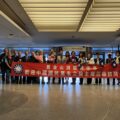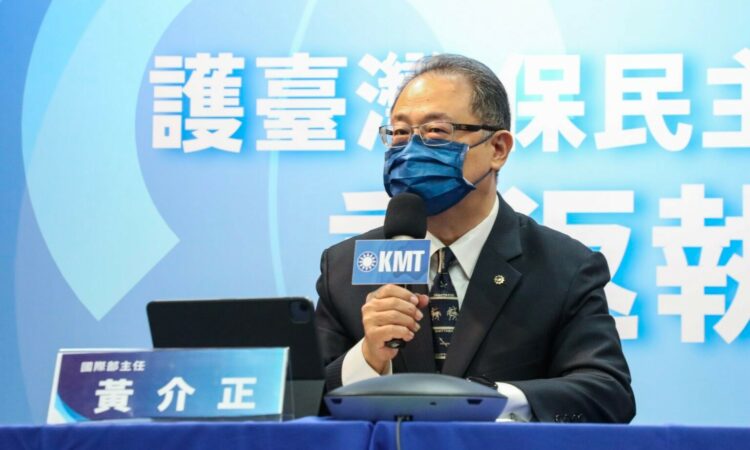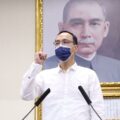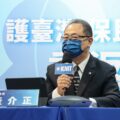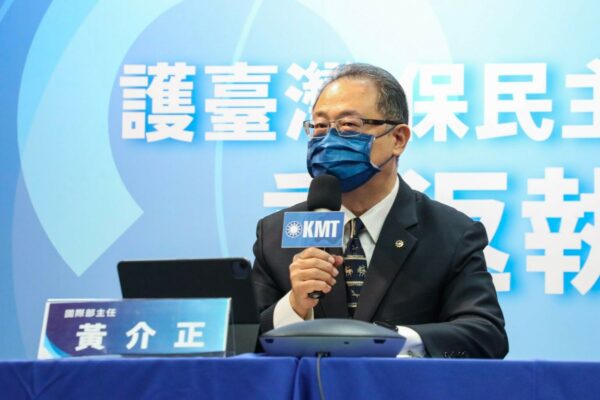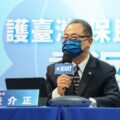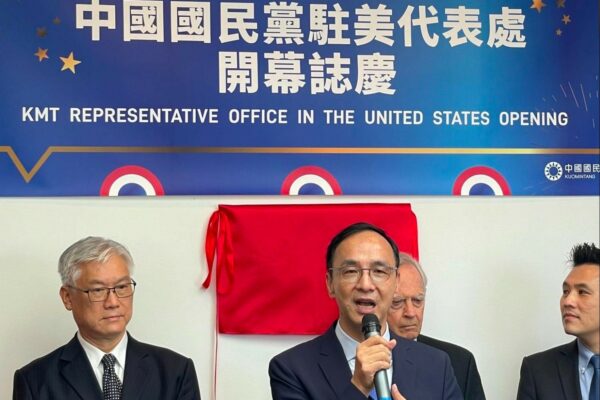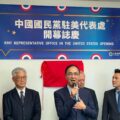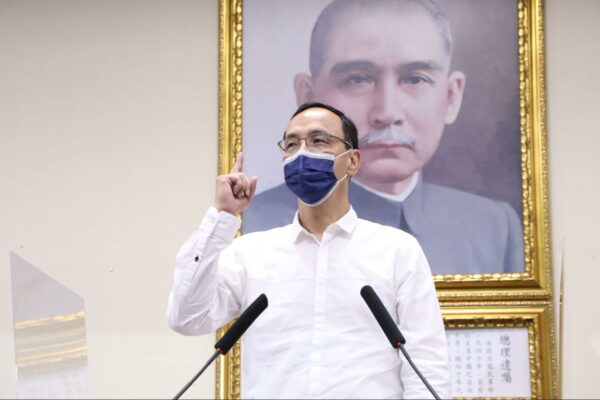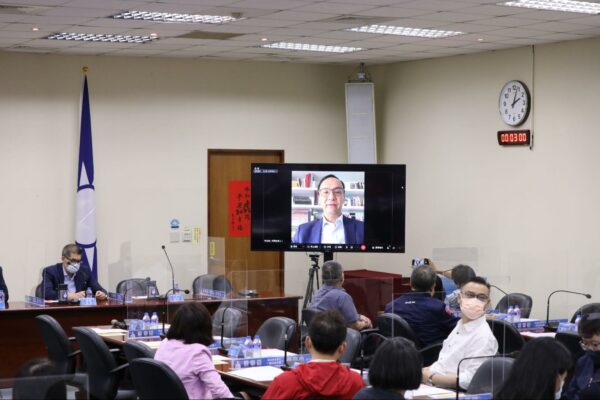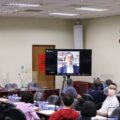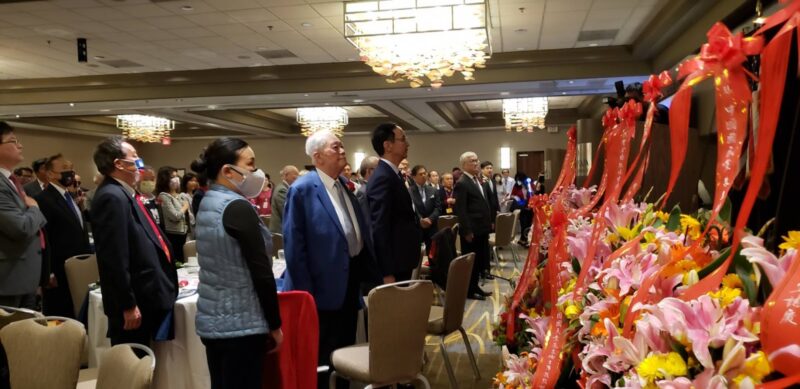
Kuomintang (KMT) Chairman Eric Chu visited the Hoover Institution at Stanford University on June 2th during his trip to the United States, where he exchanged views with scholars and experts from various fields, including Larry Diamond and Kharis Templeman, on issues such as security in the Taiwan Strait, cross-strait relations, and world trends in the wake of the pandemic.
During the conversation, the American scholars raised concerns about the local elections at the end of the year. Eric Chu said that the KMT not only holds over two-thirds of the governing power in local counties and cities, but will also put forward outstanding candidates to challenge the Democratic Progressive Party (DPP) rule in the counties and cities; the KMT is optimistic about the year-end elections.
The participants also discussed the current circumstances of democracy in Asia from the perspective of Taiwan’s democratic elections. Chairman Chu mentioned that the presidential elections in both South Korea and the Philippines this year had surprising results. South Korea elected a conservative party to office and is preparing to move towards the reintroduction of nuclear energy, and the Philippines elected the heir of a political dynasty, expecting economic development. These two examples show that public opinion changes constantly and that the candidate in question is also a very important factor. The development of democracy in neighboring countries may affect Taiwan’s elections to some extent.
When asked by scholars to describe the KMT’s role, Chu emphasized that the KMT is a pro-US political party with close ties to the US, from both the historical origins of its values and the reality of fighting together with the US side by side in the past. For more than a century, the KMT has opposed communism and competed over values and political systems with the Chinese Communist Party, while still wishing to maintain communication with the people of mainland China. The party has spilled copious blood defending Taiwan, and this will remain unchanged; the KMT will always prioritize the defense of the Republic of China, the protection of Taiwan, regardless of what type of threat or even invasion it’s faced with. Thus, the KMT can play the role of a stabilizing force which pursues peace in the Taiwan Strait.
Some of the scholars at the meeting also asked Chairman Chu and the delegation for some advice on researching Taiwan. Chairman Chu responded that he hopes that his current visit to the United States, by means of reopening the KMT Representative Office in the US, will expand communication with all sectors of the US. Only by doing this will all of Taiwan’s domestic opinions emerge without being monopolized by a few people or a specific party. He also expects that this move can provide those researching Taiwan with a more balanced perspective.
(This is an abridged translation of the above official KMT press release)

